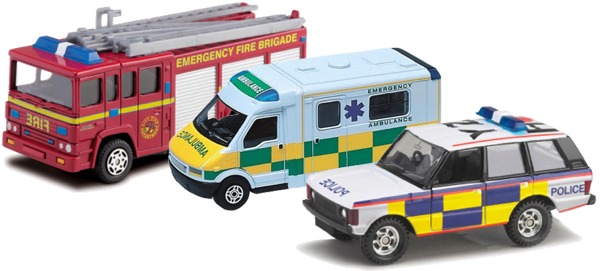This emergency advice is currently in draft form and should only be treated as a guide.
Emergency Advice (Draft)
COPIES OF THIS DRAFT EMERGENCY ADVICE ARE AVAILABLE FROM THE PARISH CLERK (Sue Squire) OR CAN BE DOWNLOADED here.
EXAMPLES OF EMERGENCY SITUATIONS
When the Parish of West and East Putford is subject to adverse weather conditions or an emergency situation, knowledge of this emergency advice should minimise the impact to those affected. The following information provides details on how to get help or assistance if you or a vulnerable person needs it.
Adverse Weather:
- Heavy Snowfall: (isolating the Parish for an unacceptable period).
- Flooding.
- Severe storm – wind and rain. (Causing structural damage to property and/or uprooting of trees).
- Electrical power cuts or loss of land line telephone services likely in adverse weather.
- Road traffic Accident: (major incident – possibly involving H.G.V.'s carrying hazardous loads, risk of: explosion, water or air pollution; all a threat to life and property).
- Aircraft Crash: Should an aircraft crash in the parish this could cause a catastrophic incident depending on the location.
- Fire: (major incident involving several properties (possibly; domestic, farm or commercial) and requiring the affected property and surrounding properties to be evacuated).
Emergency Shelter: St Stephen’s Church.
Information:
The following information is about helping you to be prepared in an emergency situation, what to have to hand and where to find useful information. Updates on what to do and how to help yourself can also be found by listening to local radio/television/relevant websites. Social media is also becoming widely used.
Look Out For Vulnerable People: If you are concerned either for a neighbour, relative or friend then (depending on the circumstances) contact emergency the appropriate emergency service (telephone 999) or a Parish Councillor for advice, (contact list at end of this document).
In Winter: Check any elderly / vulnerable neighbours; do they have access to hot drinks / food and a method of staying warm. Offer to collect some essentials from the local shop and bring in some firewood, coal / logs for them. If the person is suffering from the cold or sickness you should always dial 999 and seek professional help.
USEFUL INFORMATION
Here are some useful tips how you can help yourself and be better prepared in a time of emergency.
Before winter/adverse weather conditions, check your store cupboards.
Suggested Emergency Store Cupboard:
THREE DAYS supply - if you have to remain in your home for a significant period of time, ie prolonged period of snow (take into account the number of people in your home).
Medication (prescription and standard medication, pain relief, flu/cold medication, first aid kit, etc); candles & matches (stored away from children); toilet rolls/toiletries; long life milk; dried/tinned food stuffs (do not rely on frozen food); bottled water; tea/coffee; high energy cereal bars; camping stove (plus spare gas); pet food, etc. Note: This is not an exhaustive list, you may wish to add additional items for your own comfort. Check and update your Emergency Store Cupboard regularly.
Emergency Bag:
Packed and ready - if you have to leave your home in a hurry/evacuated:
Printed/written list of all persons in household with their prescription medication and dosages.
First aid kit; antibacterial hand gel/disposable gloves; important computer information stored on disk/USB; bottled water; wind-up torch or torch with fully charged batteries; wind-up radio (optional); notebook and pen/pencil; snack bars/chocolate; toiletries. Special items eg; glasses, contact lenses, items for babies, family medication etc. Any other items you may need (toys, puzzles, etc).
Emergency Bag:
Items to put into your bag as and when you are evacuated:
Mobile phone (fully charged and credit loaded, if applicable); cash/debit/credit cards; useful telephone numbers and email addresses.
Extreme Weather:
Cold Weather: In cold weather ensure you have a good supply of warm, dry clothing to hand if you have to leave your home in a hurry.
Hot Weather: In hot weather, the main risks posed are:-
- Dehydration (body lacking sufficient water).
- Sun (ensure you have sun hat/sun protection cream & light clothing).
Flood Emergency Advice:
Floodwater rises rapidly so if there is a flood warning, don't hope for the best, ACT EARLY.
Make A Note Of These Handy Tips, They Will Be Of Use In Case Of Flooding:
In the unlikely event of a flood in most areas of the Parish, there are a few 'flash points' that will flood from time to time - make yourself aware of these areas and be prepared. Do not drive into floodwater, the road might have been washed away and your vehicle could be swept into a swollen stream or river.
Check flood warnings at the Environment Agency website.
If You Own Pets Or Livestock, Do You Know What To Do With Them If It Floods?
Think ahead – before a flood (Livestock)
- Act early. Don't wait for a disaster to decide what to do.
- Draw up an evacuation plan for your livestock.
- Make sure you can be contacted in an emergency and keep phone numbers of people who can help you move your animals.
If you have pets
- Make sure you have suitable carriers for small animals.
- Keep a supply of food for evacuation.
- Bring all small animals inside and if possible, upstairs.
- Move food, bedding and fresh water to somewhere dry.
